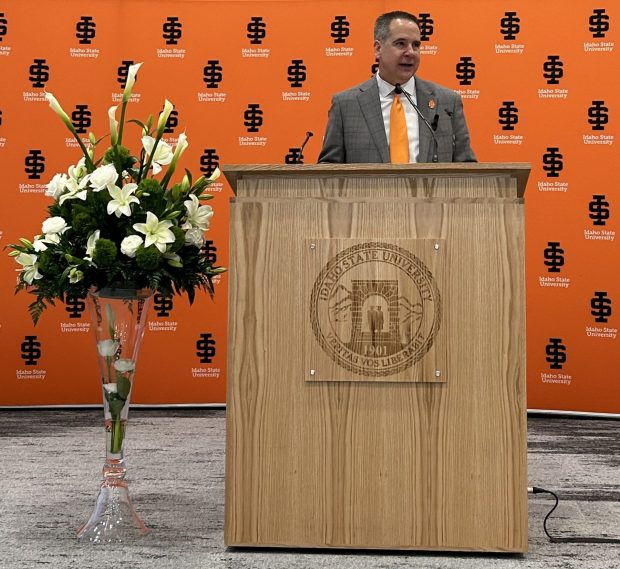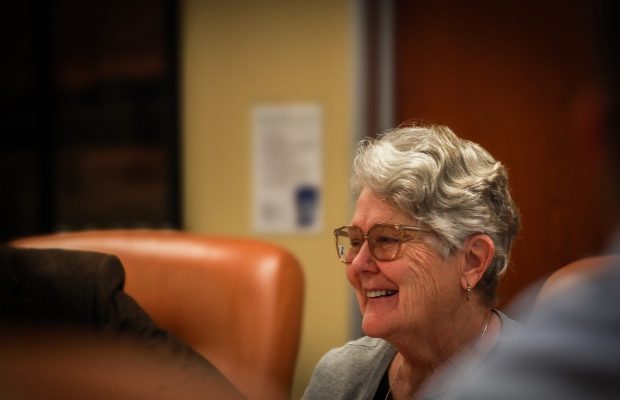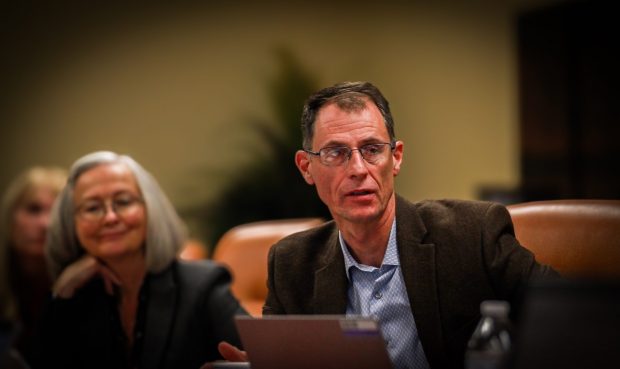Past and present colleagues lobbied for an in-house finalist — and the local newspaper jumped on the bandwagon.
One of state superintendent Debbie Critchfield’s top aides pushed for a well-known in-state finalist.
And in the end, the State Board of Education went its own way.
The Idaho State University president’s job came open on June 12, when Kevin Satterlee abruptly announced his plans to retire on Dec. 31. Eventually, 87 candidates applied for the job — an uncommonly large field. State Board of Education President Linda Clark attributes the interest to Satterlee’s successful five-year run as president — and the university’s “forward momentum.” Working with an outside search firm, a search committee narrowed the field to 12 semifinalists. After virtual interviews, the search committee forwarded five finalists’ names to the State Board.
The State Board hired a relative unknown for the president’s post at Idaho State University: Robert Wagner, a veteran administrator at Utah State University. Wagner got the job over a field of finalists that included C. Shane Hunt, the dean of Idaho State’s College of Business and a professor of marketing, and Cynthia Pemberton, the president of Lewis-Clark State College in Lewiston.

In an interview this week, State Board President Linda Clark spoke in general terms about Wagner’s attributes: a broad administrative background; a strong set of references; and, after working 90 minutes south of Idaho State’s main campus in Pocatello, an innate fit with Southeast Idaho.
A month after the hire, Clark says she is comfortable with the decision — and the State Board’s efforts at public outreach. But in the end, the most important discussions and deliberations took place behind closed doors. Many details remain under wraps. And the State Board started negotiating with their hire days before actually making a hire.
The (somewhat) public component
During the week of Dec. 4, Wagner and the other four finalists crisscrossed the state, meeting with staff, students and citizens at Idaho State’s campuses in Pocatello, Idaho Falls and Meridian. They were on a tight and intricate schedule, orchestrated by the State Board and Idaho State.
These kind of site visits aren’t unusual, at the end of a presidential search. But this search included a second public component: an online survey. Idaho State received 1,182 responses — with 714 coming from faculty or staff.
The results remain secret. Responding to an Idaho Education News public records request, the State Board released only two pages of the 111-page document. The remaining pages were redacted, with the State Board citing a far-reaching public records exemption covering an applicant’s personnel information.

The two pages that were released reveal next to nothing.
By far, Hunt was the most talked-about finalist; 351 survey comments referred to him, as opposed to 171 comments about Pemberton and 136 about Wagner. The remaining finalists — Robbyn Wacker, president of St. Cloud State University in Minnesota, and Matt Cecil, provost of Northern Kentucky University — surfaced in 115 and 110 responses, respectively.
But the State Board documents were so heavily redacted that there is no way to know how many of these comments were favorable, or unfavorable.
The board received positive and negative comments about every finalist, said Clark, who downplayed the significance of the tally.
“They’re not votes,” she said. “They’re input.”
Lobbying the State Board
Hunt, the in-house candidate, enjoyed a bit of a home-court advantage.
In a handful of emails to the State Board — obtained by EdNews through a public records request — several of Hunt’s allies pressed for his hire.
“Students absolutely love him and his classes (yes, he insists on teaching even with all of his administrative responsibilities),” John Ney, an Idaho State marketing professor, said in an Aug. 3 email to state superintendent Debbie Critchfield. “His enthusiasm is genuine and infectious!”
“Dr. Hunt is a scholar, a teacher, and a charismatic leader,” former state senator and State Board member Diane Bilyeu said in a Dec. 12 email to the board. “He is like the Energizer Bunny!”
By then, the Idaho State Journal had weighed in as well. In a Dec. 1 editorial, the newspaper took the unusual step of publicly endorsing Hunt’s bid — saying that, in just three years on campus, he had emerged as one of Idaho State’s most prominent cheerleaders.
“He has the skill set to do the job, but in all honesty so do other people,” the Journal wrote. “What no one else has is Hunt’s genuine love and loyalty for ISU and Pocatello and his desire to tell the world how great of a place this is to attend college, live, work and raise a family.”
And for one person, who sent an anonymous Dec. 4 email to State Board chief communications and legislative affairs officer Mike Keckler, it had all become too much. The email said a “lack of impartiality, professionalism, and transparency” had contaminated the presidential search.
Pemberton had at least one prominent backer: Carl Crabtree, a former state senator who now works in Critchfield’s Idaho Department of Education.
“I will tell you no president or their people worked as effectively with the Legislature as Dr. Pemberton did,” Crabtree said in a Dec. 13 email to Critchfield. “If each university had provided that effort in relationship building, the results for their budgets, and their standing with the Legislature, would be very different today.”
‘I could get a read for the room’
One day later, on Dec. 14, the State Board brought the five finalists back to Boise for a string of closed-door interviews.
After the five hours of interviews, the board took no vote and made no decisions behind closed doors, Clark said. (State law allows agencies to discuss personnel matters in executive sessions, but agencies cannot make a decision in these closed meetings.)

Still, State Board executive director Matt Freeman began negotiations with Wagner on Dec. 15. “I could get a read for the room and kind of see where the board was at,” said Freeman, who sat in on the board’s interviews.
Freeman concedes that the board is walking “a fine line,” but he and Clark both defended the behind-the-scenes process.
If the State Board announces that it is negotiating with a finalist, or it telegraphs its intentions privately, other finalists are likely to withdraw from consideration. That could leave the board with few options — or no options — if negotiations hit an impasse.
After an extensive and expensive process — costing more than $200,000, in this case — the goal is to avoid a failed search, Clark said.
On Dec, 21 — a week after the closed-door interviews, and six days after the negotiations started — the State Board voted to approve a $420,000-a-year contract with Wagner. The unanimous vote came just moments before Wagner was formally introduced on the Pocatello campus.
Technically speaking, board members could have changed their mind at any time leading up to the vote. But Freeman concedes it would have been highly unusual for the board to change course at the last minute, with a well-orchestrated public announcement already in the works.
Skeptics have questioned the process. “To pretend that nothing has been decided until a unanimous vote is taken later with no discussion flies in the face of the spirit of the Open Meeting Law,” Betsy Russell, a retired Statehouse reporter and president of Idahoans for Open Government, told Laura Guido of the Idaho Press in a Dec. 22 article.
And questions about the Wagner hire come as the State Board faces a lawsuit challenging its series of closed-door discussions of the University of Idaho’s plans to buy the University of Phoenix. That lawsuit, initiated by Attorney General Raúl Labrador, is scheduled to go to trial Monday.
The high-profile lawsuit did not cause the board to change its approach to the Idaho State search, Clark said.
“I don’t think we had any heightened concern about it, because it’s the process that we do,” she said.
Wagner will start at Idaho State on Jan. 29. On his first day, he will be at the Statehouse, introducing himself to the House and Senate education committees. After a largely private application process, his time as president will be punctuated by a public start.
Kevin Richert writes a weekly analysis on education policy and education politics. Look for his stories each Thursday.
